book review
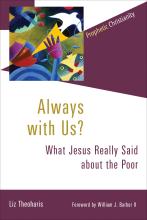
MOST RADICAL JESUS theologies begin with the gospel of Luke. In a tour-de-force work, Liz Theoharis’ Always with Us? What Jesus Really Said about the Poor illustrates that the gospel of Matthew also offers a relevant statement of “God’s coming reign of abundance, dignity, and prosperity for all.” Centering this effort is Theoharis’ striving to “rethink the role of the church in the world and to challenge some of the most widely held misinterpretations of the Bible and poor people.”
Appropriate, accurate interpretation of Matthew 26:11, where Jesus says to the disciples that they have the poor always with them, is the burden of the book. In performing this task, Rev. Dr. Theoharis, founder and co-director of the Kairos Center for Religions, Rights, and Social Justice and coordinator of the Poverty Initiative at Union Theological Seminary, demonstrates the rarefied exegete’s blend: granular analysis and big picture vision. She effectively critiques the various theological justifications for structural poverty that stem, in part or whole, from a mishandling of this passage.

SHE: ROBED AND WORDLESS, by Sister Lou Ella Hickman, is a word-feast of poetry about often-overlooked women in the Bible.
Hickman creates a beautiful narrative and poetic arc as she explores biblical terrain. I celebrate how the book gives voice and imagery to our foremothers. Each poem is well-crafted, and the book has been organized to guide readers into the question editor Tom Lombardo asks in his introduction to the book: “After Eve, who is the next woman named in the Bible?”
Hickman, a Catholic sister, is an oft-published poet who in this book weaves together with striking lyrical threads scriptural narratives and her own substantive imaginings about the hopes, dreams, and fears of women about whom we know very little. Many women in the Bible are unnamed and have no voice, but Hickman tunes our ears to listen for these ancient unheard ones. In doing so she invites us to see and hear the countless but wisdom-filled “robed and wordless” women in our communities today.

THE ART OF ... book series from Graywolf Press focuses on writing craft and criticism. In each compact volume an accomplished writer takes on a single element or theme. The most recent entry in the series is The Art of Death, by Edwidge Danticat.
Danticat’s reflections on a wide variety of literature that wrestles with death—from Taiye Selasi’s debut novel, Ghana Must Go, to C.S. Lewis’ A Grief Observed—offer insights for readers as much as for writers. She explores the complicated emotional landscape of death and mourning, but also the myriad ways, tangled in questions of both justice and mercy, that death comes: accident, illness, deadly disasters, suicides, executions.
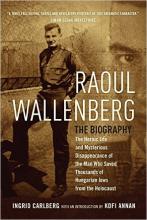
IN THE EARLY 1940s, Raoul Wallenberg was a slight, balding young man living modestly in Stockholm. He worked for a trading company that imported Hungarian poultry to Sweden. Wallenberg’s colleagues were mainly Hungarian Jews.
He had trained in the U.S. to be an architect. But on his return to Sweden, Wallenberg discovered that he didn’t have the engineering courses required to be hired in his homeland. His other career alternative, banking, also eluded him. The extended Wallenberg family owned one of Sweden’s most prosperous banks, Stockholms Enskilda Bank. But they found Wallenberg to be overly talkative, too artistically inclined, and having a penchant for drama that did not signal, for them, the makings of a top-drawer Swedish banker. So Wallenberg fell into depression, feeling that he was a failure, now known to his family disparagingly as “the grocer.”
Yet this unfulfilled young man would become, virtually overnight, one of the great heroes of World War II.
Veteran Swedish journalist Ingrid Carlberg has written a remarkable, nuanced, 600-page biography featuring extensive original research and new material: Raoul Wallenberg: The Heroic Life and Mysterious Disappearance of the Man Who Saved Thousands of Hungarian Jews from the Holocaust. The English translation of this award-winning work was released earlier this year.
When the Germans sent 500 Norwegians to Auschwitz in late 1942, the outraged Swedish government, which had remained neutral, declared that Sweden would accept any Jew who could make it to the Swedish border. They also decided to set up a special humanitarian aid mission in Budapest to help Hungarian Jews being annihilated by Hitler’s troops. A colleague at the trading company immediately recommended Wallenberg to the Swedish Foreign Mission to head the new mission.
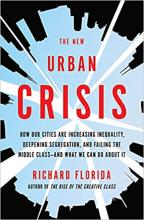
FIFTEEN YEARS AGO, Richard Florida argued in The Rise of the Creative Class that cities fostering brainy interaction, creativity, and innovation would thrive, since modern capitalism was increasingly knowledge-based. His projections were acclaimed by artsy, back-to-the-city types (including many church planters) and scorned by activists and the low-income residents that gentrification displaced.
The critics were on to something, because since then many big cities have indeed gotten sexier, but not necessarily more reliable, especially for the masses. From 2006 to 2014, average incomes declined by 6 percent, while average rent prices soared by 22 percent. Today, about 21 million American renters are putting 30 to 50 percent of their income toward rent, with 30 percent representing the “cost-burdened” threshold.
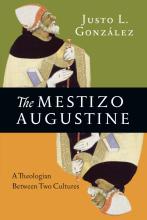
“YOU HAVE MADE us for yourself, O Lord, and our hearts are restless until they find their rest in you.”
These oft-quoted words, delivered from pulpits, books, and classrooms through the centuries, came from the theological giant St. Augustine. Augustine is widely noted as one of the most important theologians in Western Christianity. His acclaimed works, most notably Confessions and City of God, have shaped the thinking and spirituality of pastors, scholars, and regular church-going folk.
However, even with all the pages written about Augustine, there’s been a missing element that hasn’t been significantly excavated, namely, Augustine’s mestizo makeup. This is why historical theology scholar Justo González’s new book, The Mestizo Augustine: A Theologian Between Two Cultures, is a welcome and much-needed contribution to Augustinian theology.
The central thrust of The Mestizo Augustine is the exploration of the “mestizo” nature of Augustine and his theological journey. The word “mestizo” (which flows out of Latino/a theology) is a Spanish word that captures what it means to be of mixed heritage. Being mestizo is a recognition of hybridity or, as González notes, “to belong to two realities and at the same time not to belong to either of them.” This mestizaje lens is needed to better understand Augustine.
González unpacks the African/Roman hybridity of Augustine. This hybridity manifested in language, philosophical frameworks, and traditions. For example, being mestizo, Augustine lived in two worlds as it pertained to understanding the concept and practice of authority. González notes that in African culture, authority rested in the holiness, wisdom, and charisma of a leader. In Roman culture, authority did not rest on individual character but “in the function to which that person had been assigned.” Being mestizo meant Augustine needed to wrestle with the implications of these two worlds.
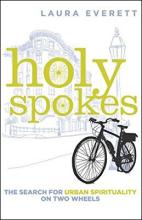
I LEARNED HOW to bike relatively late in life. I was 23, and it cut my commute in half. Since I’d been walking an hour each way for a night shift that started at 11 p.m., that meant a lot. My guru was an elder from my local church who lived across the alley. He taught me how to change a tire, gears, and my life. He showed me hospitality by teaching me about my bike, but it extended much further than that.
UCC minister Laura Everett does much the same thing in Holy Spokes . She uses the metaphor of a bike as a lens to discuss the broader issues of how to relate to people, the Earth, and God: Mostly how, to use Brother Lawrence’s term, to practice the presence of God.
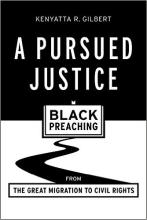
MARTIN LUTHER KING JR. did not initiate black prophetic preaching; he was, rather, initiated into it. Rev. Kenyatta Gilbert’s A Pursued Justice: Black Preaching from the Great Migration to Civil Rights is a theological origin story about the distinctive rhetorical tradition that is black prophetic preaching.
The text begins by naming the social crisis of the Great Migration—shorthand for a massive demographic shift of 1.5 million African Americans from the South to the North between 1916 to 1940—as an essential context for understanding black prophetic preaching. This tradition of Christian proclamation—which Gilbert calls “exodus preaching”—is framed in the context of black pastors seeking to respond theologically to the pressures of injustice, prejudice, and segregation that black migrant workers navigated in Northern urban communities in the inter-war period. Of special note, Gilbert surfaces the social gospel tradition of African-American clerics who, unlike white social gospel leaders Walter Rauschenbusch, Josiah Strong, Washington Gladden, and others, demonstrated a desire to not only build institutional churches that confronted industrial evils but also to address systemic issues of lynching, police brutality, and so on.
While the entire book makes an important contribution to the study and practice of preaching, the third chapter, in particular, sparkles with insight. Within it, Gilbert marshals a solid cast of intellectuals—including Paulo Freire and Zora Neale Hurston—to land on a four-part definition of prophetic preaching. He contends that prophetic preaching unmasks systemic evil, remains hopeful in difficult situations, aids listeners in naming their own reality, and displays a will to adorn. The criterion of adornment—with patient attention to aesthetic categories of beauty, vision, and desire—is some of the most creative theological writing, in any genre, that you are likely to read. On a practical level, the definition provides a yardstick against which working preachers and homiletics faculty can assess the strength of contemporary pulpit work.
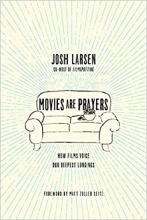
AS A TEENAGER growing up in a church setting that discouraged engaging with movies, books, or music deemed a “bad influence,” I remember frequently being confused about pop culture, particularly when it came to what films I was “allowed” to watch. Was I wrong for wanting to see Taxi Driver ? For identifying with Saved? Was it a sin to watch The Last Temptation of Christ?
The answer to all these questions, of course, is “no,” but the sentiment behind them is understandable. The easiest metric for Christians to judge a film’s quality is the measure of its “objectionable” content, regardless of what that content says about the filmmaker’s intent, or the political or cultural attitudes under which it was conceived. The truth, however, is that all art—whether spiritual or secular in origin—has something to express about the world: joy in its beauty, anger at its injustice, a whole spectrum of emotions and ideas that reflect the human experience.

IN 1967, I TRAVELED with activist friends from New York to Baltimore to support four people there who poured blood on the 1A files that compelled young men into the military and the massacre in Vietnam. The “Baltimore 4,” as they became known, committed the first of some 100 actions focused on draft boards, the source of cannon fodder in the ever-escalating wars in Indochina. It was during one of these trips that I met Willa Bickham and her husband, Brendan Walsh. Our friendship has been rich, varied, invaluable.
In The Long Loneliness in Baltimore, Walsh and Bickham tell of their nearing 50 years serving the people of Baltimore as the Viva House Catholic Worker. It is a story that needs telling, especially now in this country that is profoundly ruptured by economic and racial conflict.
Try as the politicians and the press might, it is impossible to disengage economics from race. Bickham and Walsh know this intimately, living in the midst of an impoverished black neighborhood. They have experienced drugs, murders, robberies, and destruction right outside their front doors. The alley that runs beside their home, thanks to their creativity, is marked with memorials to men and boys shot and killed there. Repeatedly, after almost every major killing, Walsh has told the press what has become crystal clear to him: that in Baltimore City (as in too many cities), selling drugs is the only job that exists for all-too-many people of color.
In the garden outside Viva House is the Hope Stone. In Bickham’s script, it quotes Martin Luther King Jr.: “We will hew out of the mountain of despair a stone of hope.” That is the invitation to all who come to Viva House for whatever reason, to meet whatever need. Each is sure to receive respectful and caring human interaction, food, fellowship, help with bills, a place to escape the cold or heat or rain, a place of justice and peace.
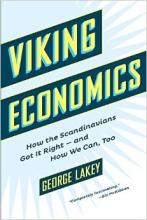
Viking Economics: How the Scandinavians Got it Right — And How We Can, Too, by George Lakey. Melville House.
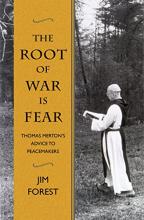
DO WE LIVE in a post-Christian era? Catholic monk Thomas Merton thought so, back in 1962, when his anti-war book Peace in the Post-Christian Era was banned by monastic censors.
He would surely come to the same conclusion today, when we hear a pulpit Christianity still identified with war and nationalism and listen in shock to a new U.S. president woefully ignorant of the peril of nuclear war. Our deeply divided nation holds scant promise for peace in our streets or in the world, despite the growing chorus of Christian peacemakers.
This new book by Jim Forest adds both deep compassion and timely advice to that chorus. The wise words of Merton, who served unofficially as “pastor to the peace movement” during the Vietnam War, are needed now more than ever. Clearly titled chapters quote from Merton’s published writing as well as his letters to Forest and other peacemakers.
In October 1961, The Catholic Worker published Merton’s essay “The Root of War is Fear,” and Merton ran afoul of monastic censors. He was eventually silenced publicly but fortunately was allowed to circulate Peace in the Post-Christian Era in mimeographed form and to continue writing letters, although for several years everything passed through the censor’s hands. One of the delights of this book by Forest is the first publication of an uncensored and scathingly sardonic letter Merton wrote under the pseudonym “Marco J. Frisbee.”
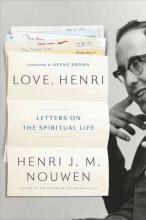
“A SUGGESTION: Speak much about Jesus.” Henri Nouwen’s recommendation to a friend, captured in Love, Henri—a new collection of his personal correspondence—encapsulates the priest and author’s private and public ministry. More than almost any other modern figure, Nouwen bridged Catholic/Protestant doctrinal divides with his writing to bring spiritual healing and comfort, even as he wrestled with what he termed his inner “demons.”
Edited by Gabrielle Earnshaw and released in conjunction with the 20th anniversary of Nouwen’s death, Love, Henri highlights the priest’s struggle for inner peace and his extensive web of deep friendships. While the collection does not present any shocking revelations, and contains fewer transcendent moments of raw emotion than other collections of Nouwen’s writing, it works well as a meditation on what it means to love selflessly and extend oneself over a lifetime.
In the collection, Henri is both protagonist and antagonist, healing and wounding those in his life. While Nouwen himself acknowledges “a kind of enthusiasm” in his own writing that “seems a little bit too easy,” the gift is watching him participate in these seeker/giver relationships. In early letters, he is often overly attached: “Maybe your distance simply means that I force myself upon you and there is not a mutuality that makes friendship possible.” Later, though, we see him “speak about [his] inner struggles as a source of self-understanding” and solidarity, rather than a way “to avoid difficult positions and responsibility and evoke some sympathy.”
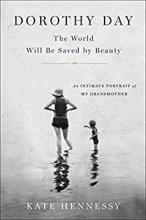
IN DOROTHY DAY: The World Will Be Saved by Beauty, author Kate Hennessy, Dorothy Day’s youngest granddaughter, gives a deeply intimate and highly credible account of her grandmother, a writer, social activist, and co-founder of the Catholic Worker movement with Peter Maurin in the 1930s. Hennessy explores themes of integrity, vocation, and community, portraying Dorothy Day honestly in her gifts and faults. But the most powerful thread is raw beauty that links together the author to her grandmother, strangers to one another, and people to God.
Day’s life was often complicated and marked by loss. Nonetheless her worldview was postured toward the words of poet Max Bodenheim: “I know not ugliness. It is a mood which has forsaken me.” Queen Anne’s Lace growing in the city, spinning wool with her grandchildren, her love for the father of her only child, standing in a breadline with seamen, or walking along the shore are all examples of the beauty that both guided and followed Dorothy Day.
Day, who was born in 1897, wasn’t yet a Catholic when she moved to New York City from Illinois in 1916 in pursuit of a writing career. She mingled with writers, artists, and radicals and was active in the social movements of the time. Hennessy notes that Day “was not always the clear-eyed visionary that we now see her as.” Day considered her life “disorderly” and moved from job to job, from one lover to another; she tried to commit suicide on two different occasions.
But even before Day knew God, she knew that God was leading her. She said, “I cannot help my religious sense, which tortures me unless I do as I believe right.”
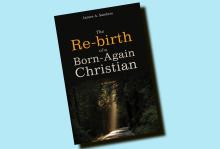
JIM SANDERS IS among the most respected and influential world-class Old Testament scholars of the last (my) generation. His signature interpretive impulse is what he calls a “monotheizing process.” By this Sanders means an urge toward affirmation of and obedience to the one true God, an affirmation and obedience that issues in love of the enemy in a way that requires dialogic engagement. By the term “process” Sanders insists that “monotheizing” is a dynamic, ongoing act that never reaches closure but always invites new energy and imagination. Thus, one can find in Sanders’ work both large-hearted energy and passion.
The present book is a narrative account of his life, attentive to two important themes. It traces Sanders’ maturation as a scholar with a teaching career at Colgate Rochester Divinity School, Union Theological Seminary, and Claremont School of Theology. Sanders’ great scholarly work has been his generative contribution to textual matters, with an initial focus on the Dead Sea Scrolls and then work at the Ancient Biblical Manuscript Center in Claremont, Calif., where he was the key figure.
That scholarly maturation is matched in the narrative by an account of how Sanders has emerged as a powerful and insistent advocate for social justice. In his telling he grew up in South Memphis in a community that practiced racial apartheid with what he terms an “iron curtain” between whites and blacks, reinforced by an evangelicalism of the privatizing kind.
The turning point for Sanders was his college and seminary experience at Vanderbilt University. He has very little to say about his formal study in those degree programs. What counts in his memory is his involvement in campus Christian ministry programs where he came to understand the urgency of social ethics that forcefully summoned him beyond his initial evangelicalism. Led by good mentoring, he discerned the systemic practice of injustice that contradicted his newly aware sense of the gospel.
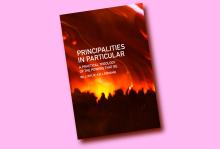
FOR DECADES, pastor, activist, and scholar Bill Wylie-Kellermann has kept alive and furthered a theology of the biblical “powers and principalities” (Romans 8:38; Colossians 1:16; Ephesians 6:12), in the tradition of William Stringfellow and Walter Wink. Principalities in Particular is a compilation of his essays, rooted in applied struggle and practice, on these invisible but embodied forces that shape and often dominate human life.
Through stories of engaging specific principalities over time, Wylie-Kellermann brings an abstract concept to life. He explores racism, nuclear weapons, sports, family systems, corporate globalization, slavery, the drug powers, war, the Trump presidency, the global economy, and other principalities, immersing readers in a worldview that perceives not only their outer manifestations, but their inner realities as well.
One example is the corporate-friendly system of emergency management that has replaced democracy in controlling the author’s home city of Detroit and other black-majority cities in Michigan.
Wylie-Kellermann portrays local community struggles as fighting (nonviolently) for the soul of the city. He describes a statue called “The Spirit of Detroit,” which stands near City Hall, providing a focus and gathering place for community activists. In a similar vein, he tells of an interfaith group that drafted letters to “The Angel of Detroit,” calling the city back to its better nature and true vocation in service of life.
Wylie-Kellermann claims that “half of any struggle is a spiritual battle.” What is at stake is not simply a specific desired outcome, but also human healing and liberation. “We are complicit in our own captivity. ... The healing of the planet and the healing of ourselves, inside and out, are one.”
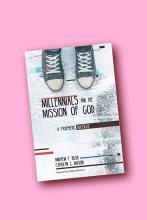
THIS BOOK SURPRISED me. Millennials and the Mission of God incarnates the “prophetic dialogue” of the subtitle. There are many books about millennials, but here a representative speaks for herself and an older interlocutor listens and responds to the concerns and arguments voiced. Together, baby boomer Andrew Bush and millennial Carolyn Wason ponder the future of the church, how Christianity is changing, and how to engage millennials.
Those with no affiliation, the Nones, are growing; traditional ministry models are failing. Wason, with her background in anthropology, sheds light on why. Her prose is playful and filled with self-deprecation as she laughs at her generation’s idiosyncrasies. As she muses on hashtag activism and Harry Potter, she is frank, openly discussing the role fear plays in millennial evangelism. The long history of Christians oppressing people of other faiths weighs heavily on the shoulders of this emerging generation. Afraid of unconsciously leveraging an ill-gotten Christian privilege, many millennials retreat from traditional evangelizing.
For Wason, the question of faith is not “Is it true?” but rather, “Does it matter?” Thus, her doubts and questions center not on the Bible’s veracity, but on the influence of the church on the world. Her observations will resonate with many millennials.

IT FEELS GOOD to laugh out loud. In the past year I haven’t felt lighthearted about weighty topics such as our political leadership, globalization, and climate change. But Bill McKibben’s latest book, Radio Free Vermont, reminds me that humor can be as powerful as protest in speaking truth to both injustice and abuse of power. Prolific writer, climate organizer, Sojourners columnist, and co-founder of the organization 350.org, McKibben has given his life to galvanizing the climate movement. He advocates for a diversity of strategies, from a carbon tax to public art, with a seriousness reflecting the high stakes of inaction. In his first work of fiction, the satirical plot of Radio Free Vermont revolves around the exploits of Vern Barclay, a 72-year-old radio announcer who finds himself at the center of a campaign to convince Vermonters to secede from the U.S. His motley crew of allies includes Perry Alterson, a teenager with technological expertise who ends every sentence with a question; Trance Harper, a former Olympic biathlon winner; and Sylvia Granger, a firefighter who harbors these fugitives while teaching investment bankers and corporate attorneys how to drive in the mud and fell trees for firewood in their new state. The narrative begins with acts of nonviolent and almost joy-filled resistance by the accidental activists, which include taking over the airwaves at Starbucks with Radio Free Vermont (“underground, underpowered, and underfoot”) and the rather polite hijacking of a Coors Light truck to replace the cargo with Vermont craft beers (which are mentioned by name in nearly every chapter). It’s like the Vermont Welcome Wagon received training in civil disobedience, with a local brew never far from reach.

It would be presumptuous, from my position of reserve, to make sweeping declarations about what Christianity needs. But I've come to realize what I need from Christianity — a call to action, not permission to engage in the quasi-gnostic pursuit of personal fulfillment.

Pluralism is valuable because Jesus is the sovereign lord of everything — all places, people, religions, and cultures.